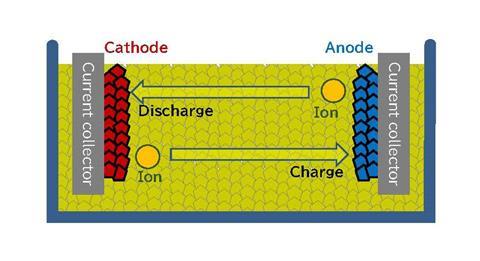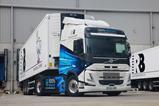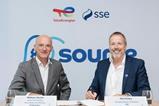Idemitsu Kosan and Toyota Motor Corporation have teamed up to develop the technology and production capabilities needed for all-solid-state batteries, with series production as early as 2027.
Solid state batteries, considered a game changer technology in the development of battery electric vehicles, have taken a significant step toward becoming a commercial reality with the news Toyota and Idemitsu have partnered to develop the technology and manufacturing capability for high volume production. The primary focus of this partnership is on sulfide solid electrolytes, considered a promising material due to its potential to provide high capacity and output for battery electric vehicles, says Toyota. Sulfide solid electrolytes possess properties such as softness and adhesiveness to other materials, making them suitable for mass battery production.
In the first phase of the partnership the focus will be on the development of sulfide solid electrolytes and the preparation for a large pilot facility, following the succesful completion of which, Idemitsu will manufacture sulfide solid electrolytes in a large pilot facility, and Toyota will develop all-solid-state batteries using these electrolytes. The aim is to launch BEVs with all-solid-state batteries in 2027-28.

In a solid state battery the electrolyte (a liquid or polymer in a lithium-ion battery) is, as the name suggests, a solid. It is expected that the solid electrolyte will enable larger-capacity and higher-output batteries than lithium-ion batteries. By changing from a liquid to solid electrolyte, the ions will move better in the battery cell, making it possible to create batteries with larger capacity and higher output than lithium-ion batteries. Moreover, making the electrolyte solid has safety advantages over lithium-ion. The downside, had always been expected battery durability, although Toyota claims to have overcome this challenge.
The technology was initially slated for introduction in hybrid electric vehicles (HEVs), but now Toyota’s primary focus is on its use in next generation BEVs.
By combining their material development technologies, Idemitsu’s material manufacturing capabilities, and Toyota’s battery processing and assembly technologies gained through BEV development, the two companies are striving to achieve mass production of solid electrolytes and all-solid-state batteries suitable for global use. Their collaboration extends across industries to contribute to global carbon neutrality and lead the way with Japanese-developed technologies.


















